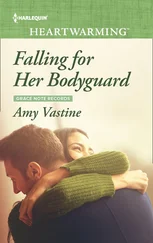He asks sleepily, "Hey, I forgot how it goes-the umbilical cord, do they cut it off both of them at the belly button?"
"What do you mean, both of them?"
"The baby and her?"
"The mother, you mean?"
"Yeah."
"Are you serious?"
He lifts up on his elbows, surprised at her tone of voice, almost hurt. It takes her a minute to grasp, and then she sees with painful clarity the impression sketched inside him: a thread stretching from his navel to his mother's.
She falters briefly. He looks at her with penetrating eyes, and a sudden and decisive urgency darts between them. She smiles at him, her pros and cons get mixed up, and somehow, out of the smile, an answer escapes. She could never tell lies, but she was an expert at giving little gifts like this.
As I reach the last word, she sighs. I don't ask. I wait. It occurs to me that we've actually been living apart for longer than we lived together. You could say that for a long time we've known each other only in chapter headings. But how could that be? I mean, how could such a reduction occur between us? Or between her and anyone.
Reduction is not the right word, though. It's more as if over the years we've become two polite tour guides at a disaster site, but one that destroyed our lives. After the incident she retired. Stopped teaching. He was, in fact, her last student, and I think she also stopped doing yoga herself. I'm not sure about that; I've never been able to ask her, and now it's too late. She made a living doing odd jobs. She modeled for art classes. She was a salesclerk in a housewares store. Then she sold paintings for an old artist, going from door to door asking people to just take a look at the pictures. I left her on my seventeenth birthday, my gift to myself. Then I came back, or was sent back, with my tail between my legs. Then I left again, and the same thing all over again. She once said, with uncommon sobriety, "Our umbilical cord has shriveled up." Years later, during one of the disconnects, when I was already deep in my London life, I found out from a friend that she was ill. We developed a tolerable routine: one conversation a week. She would give me a sign with two rings, and if I felt like it, I'd call her back. Once I came to visit her, courtesy of Walter Tours. It wasn't a good visit. ("Cursed is the parent," she told me then, before I left in the middle of a horrible row, "who can be objective about his own child.") During those years, in my rare flashes of composure, I wrote the tourist stories and collected them into a book. I tried to dabble with cinema a little, and journalism, and I discovered my limitations, and mainly I learned that there was a price to pay for that childhood (it turns out there's no such thing as a free starvation), and that in the meantime the world had filled up with other children who hadn't wasted all their strength on just surviving but had simply grown and opened and deepened, and that only in her innocent eyes could I still be considered worth anything.
"Within every effort there has to be calm," she recites for him. "Always, in every pose, you have to stop just before the effort becomes pain."
"Sometimes I think … a bird, for example," he says.
"Yes, what about it?"
"To fly, it has to keep flapping its wings, right?"
"Definitely," she agrees gravely.
"I'm not talking about gliding," he says fussily, and her ear opens a little at the sound of the new word. "There are birds that glide without making any effort, but I'm talking about a bird that has to make an effort to fly up."
"Okay." Nili shrugs, wondering where he himself is flying with this.
"And a bird that lives, say, for a year? Two?"
"Let's say."
"And all that time it has to make an effort with its wings, otherwise it'll fall?"
"Definitely."
"But maybe once, like one time in its whole life, it happens that it can fly up high, the highest-for maybe a whole minute-without making any effort at all with its wings?"
She leans forward, shrinking the crease between her eyes, sensing something approaching. "And how exactly does that happen?"
He takes on a mysterious expression. "It gets it from the air."
"I don't get it."
"Like once in every bird's life, the air lets it fly up without making any effort."
She blinks. What is it with these aerodynamic theories all of a sudden?
But he's very serious and focused. "It's like …" He searches for an example, his fingers moving, pulling something from the air. "It's like, say … a holiday bonus, like the air is giving it a bonus. A discount. Once in a lifetime."
"Oh." Nili laughs with sudden comprehension. "And does it know, the bird? Does it understand?"
He falters. "That's what I keep wondering. 'Cause if it doesn't understand, then it's like the air's efforts are wasted on it, no?"
"I guess so," she answers, delighted.
"And if it does understand, then. No, that can't be. No. It must not understand, 'cause it's just a bird, with a bird brain. Sure." He gets excited; now that he's made up his mind, his face lights up. "It's something the air just does for fun!"
From the great relief on his face she guesses how long the question has preoccupied him.
"It doesn't even realize it at all! Just that suddenly it feels light, but it's the air that decides: Okay, now you. Now you. Playing with its birds, you see?"
Do I see? Nili wonders, looking at him contemplatively.
"And by the way," he adds gravely after a minute, "it's the same with the sea and the fishes."
"Okay," she sighs, "tell me about her."
I tell her. "She's huge, Melanie, tall and wide, even a little scary at first, but she is such a soul, and warm and honest and"-for some reason the word in Hebrew escapes me-"kind of tangible?"
She is surprised. It's not how she'd imagined Melanie. She refused to even look at a picture. So I tell her more. Little things, like her work at the rehab institute, and the way she rides her purple bike around the streets of London. And her simple, healthy self-confidence-if only I had a quarter of it-and her masses of energy, which, to me, are sometimes simply paralyzing. "That woman needs almost no sleep." I laugh. "And there is her absolute honesty toward any person-no one gets off easy. And sometimes, here and there, there's a toughness," I say, then add, "a kind of intransigence," surprised at how a little spray of betrayal has escaped me. "She has these definitive principles which sometimes, to be honest, can make life pretty complicated. Actually, Melanie could easily fit in with that gang of yours, the ones that collect birds at four in the morning."
Nili hears everything, including the crumple in the middle of my laugh. The intransigence and toughness-it flashes in my mind-of someone who has never yet broken down, not even cracked.
"And does she know what the story is about?"
"She knows everything that happens in my life."
I shouldn't have said that, certainly not that way, but I knew why I had to say it that way, to correct a mistake with an error. I could actually hear a little sound from within her, like a match snapping.
Now there is silence. Her feet are exposed at the bottom of the blanket. They are huge, swollen. Bluish yellow. I stare at them. The toes look joined into one mass.
"And what did she say?"
Her voice can't fool me. I want to change the subject, but I'm also not able to completely give up, pulled this way and that, feeling like a child of divorced parents forced to convey messages between them. "What did Melanie say? She said that I should have written it years ago." She said something else too, but I don't have the guts to convey that. She thought that if Nili had read this story years ago, maybe she wouldn't have gotten ill.
When her head sinks, her goiter looks huge, red, crisscrossed with veins. Tiny waves travel through it. What is she thinking now? Strange how difficult it is for me to guess her when I'm sitting right next to her.
Читать дальше












